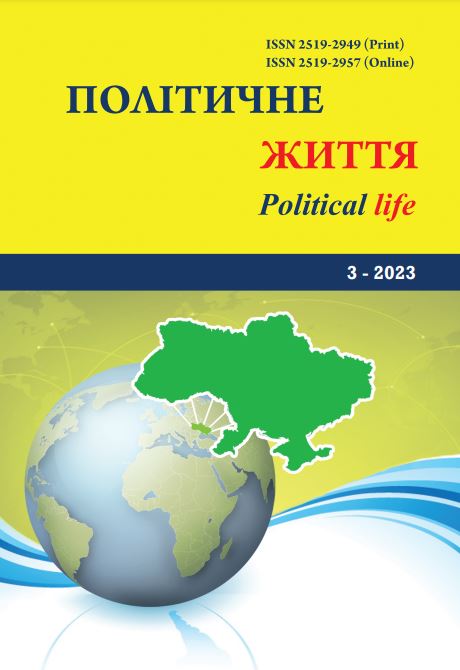The USA-British relations (1997–2009)
DOI:
https://doi.org/10.31558/2519-2949.2023.3.12Keywords:
England-American alliance; «special relations»; «reasonable strategy»; NATO expansion; Iraqi crisis; Ulster problem; Kosovo problemAbstract
Review of the «special relationship» between the United States and Great Britain in the period 1997–2009 through higher bilateral relations and joint activities in solving international problems in Europe and the Persian Gulf region. As result relations have proven their effectiveness, and countries became interdependent. The purpose of article is to research the activities of the Anglo-American Union in modern international forms. At the same time, the author solved the following tasks: to give an assessment of the «special relations» of the two countries through the prism of overcoming crisis phenomena, relying on the analysis of memoir literature as a source of research. The methods of research are comparative-historical and systematic, which provide an opportunity to objectively cover the subject of scientific research. Bilateral opinions during the second administration of President B. Clinton and Prime Minister T. Blair were quite productive. The two leaders demonstrated complete mutual understanding, a commonality of philosophical and political views, which they called the «third way», but differences in overcoming internal political, socio-economic and foreign political problems. It was one of the strongest tandems in bilateral relations in the years after the end of the Second World War. It proved its effectiveness in resolving the Kosovo problem, successfully completing its mission in Northern Ireland. No less intense and effective were the exchanges between President J.V. Bush and T. Blair despite their certain differences in political and philosophical views. Tragic Horseshoes On September 11, 2001, two leaders who fought international terrorism in Afghanistan met with the United States. Their activity against the regime of S. Hussein, who was called in the production of weapons of mass destruction, is not key, but its evaluations are contradictory. However, the Iraqi leader's non-constructive approach to solving this issue, which has long challenged the countries of the region, is worthy of harsh criticism. Memoir literature was the main source of the study of the «special» American-British relations and gave an opportunity to consider a certain variety of points of view on question that was investigated.
References
Блер Т. Шлях / пер. з англ. Петро Таращук. Київ: Темпора, 2011. 848 с.
Буш Дж.В. Ключові рішення / пер. з англ. Н. Гербіш. Київ: Брайт Стар Паблішинг, 2012. 512 с.
Войтович О.І. М. Тетчер і Р. Рейган у спогадах сучасників: політичні портрети // Вісник ОНУ. Політичні науки. Одеса, 2016. Том 21. Випуск 4 (27). С. 97–108.
Лільєгрен Г. Від Таллінна до Туреччини. Мемуари шведа і дипломата / пер. з англ. А. Таращук. Київ: Темпора, 2010. 352 с.
Albright M. Madam Secretary. New York: Miramax Books, 2003. xvi, 720 р. https://archive.org/details/madamsecretary0000unse URL: (Дата звернення: 6.08.2023)
Clinton B. My Life. New York: Alfred A. Knopf, 2004. 957, xlii p. URL: https://archive.org/details/mylifecl00clin (Дата звернення: 3.08.2023)
Kissinger H. Diplomacy. New York: Simon & Schuster, 1994. 912 p. URL:https://archive.org/details/diplomacy00kiss/page/n7/mode/2up (Дата звернення: 6.08.2023)
Kissinger H. Does America Need a Foreign Policy? Toward a Diplomacy for the 21st Century. New York: Simon & Schuster, 2001. 318 p. URL: https://archive.org/details/doesamericaneedf0000kiss/page/n9/mode/2up (Дата звернення: 6.08.2023)
Major J. The Autobiography. New York: HarperCollins Publishers, 1999. xxiii, 774 р. URL: https://archive.org/details/johnmajor00john/page/774/mode/2up?view=theater (Дата звернення: 3.08.2023)
Thatcher M. Statecraft. Strategies for a Changing World. London: HarperCollins Publishers, 2002. xxv, 486 p. URL: https://archive.org/details/statecraft00marg (Дата звернення: 3.08.2023)
The Future of the Balkans. An Interview with David Owen. The Editors // Foreign Affairs. Spring, 1993. Vol. 72. № 2. P. 1–9.

